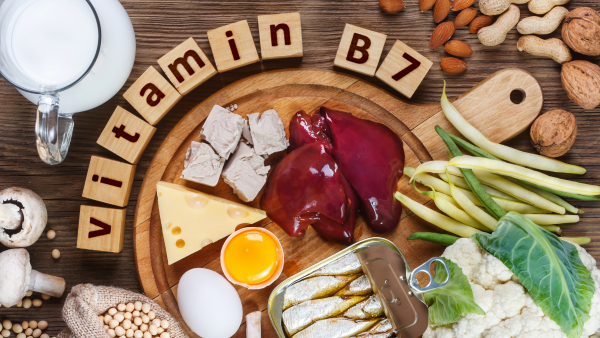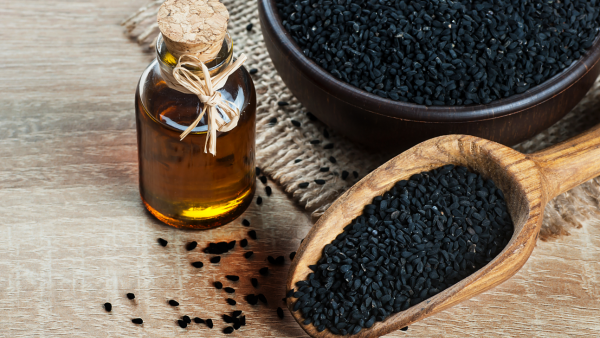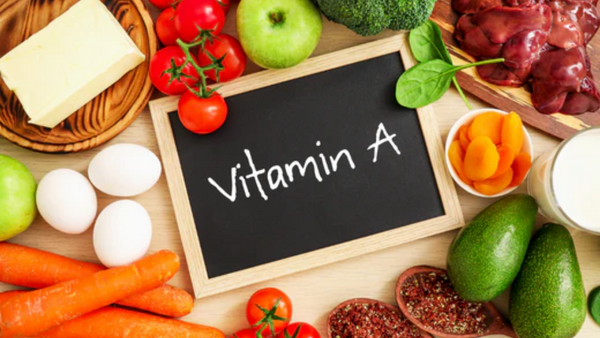Biotin is also known as the beauty vitamin. It is said to ensure beautiful skin, hair and nails. What is the truth behind this? In this article, you will learn what biotin does in the body and how you can meet your needs.
Why is biotin important?
Biotin is one of the B vitamins and is also known as vitamin B7. It is a water-soluble vitamin. Biotin is an essential nutrient that we must consume through food.
The B vitamin has important functions in sugar, fat, protein and cholesterol metabolism. It is also needed for the formation of sugar from fat and protein. This is particularly important in the absence of carbohydrates or during fasting phases.
Biotin is also important for the formation of protein. This includes the formation of keratin, the protein that our hair is made of. [1]
The European Food Safety Authority confirms the following effects of biotin in its Health Claims Regulation:
Biotin
- contributes to the maintenance of normal skin
- contributes to normal energy metabolism
- contributes to the maintenance of normal mucous membranes
- contributes to the maintenance of normal hair
- contributes to normal psychological function
- contributes to normal macronutrient metabolism
- contributes to the normal functioning of the nervous system
Biotin daily requirement
According to the German Nutrition Society (DGE), the daily requirement of biotin for adults is 40 µg. Breastfeeding women have a slightly increased requirement of 45 µg. [2]
Symptoms: How to recognize a biotin deficiency
A biotin deficiency manifests itself through the following symptoms:
- depressive moods
- Hair loss
- Skin problems
- Brittle fingernails
- Loss of appetite
However, these symptoms are non-specific. They can have many causes and do not clearly indicate a biotin deficiency. To determine a biotin deficiency, biotin must be measured in the blood.
Foods with biotin
Liver, egg yolk and yeast are very rich in biotin. But biotin is also found in many other foods.
The following table shows the 10 best biotin suppliers: [3]
|
Groceries |
Biotin content ( µg/100 g) |
% of the recommended daily allowance (RDA) [4] |
|
Chicken liver |
187.2 |
468 |
|
egg yolk |
27.2 |
68 |
|
Yeast flakes |
20.2 |
50.5 |
|
Peanuts |
17.5 |
43.8 |
|
Sunflower seeds |
7.8 |
19.5 |
|
Salmon |
5.9 |
14.8 |
|
pork |
4.5 |
11.25 |
|
Almonds |
4.4 |
11 |
|
Mushrooms |
2.2 |
5.5 |
|
Strawberries |
1.5 |
3.8 |

Biotin as a dietary supplement
The need for biotin can usually be met through food. However, some people have an increased need for biotin, which can lead to a biotin deficiency. These include people with chronic intestinal diseases , breastfeeding women, smokers and alcoholics.
If biotin is lacking in your diet, high-quality dietary supplements can counteract a deficiency of this essential nutrient.
When choosing biotin supplements, it is advisable to make sure that they do not contain unnecessary additives such as binding, separating or gelling agents, artificial preservatives, coloring or sweeteners.
Another important quality criterion is development in a German laboratory, since the highest quality standards apply in Germany.
[1] https://www.ncbi.nlm.nih.gov/books/NBK554493/
[2] https://www.dge.de/forschung/referenzwerte/biotin/?L=0

















